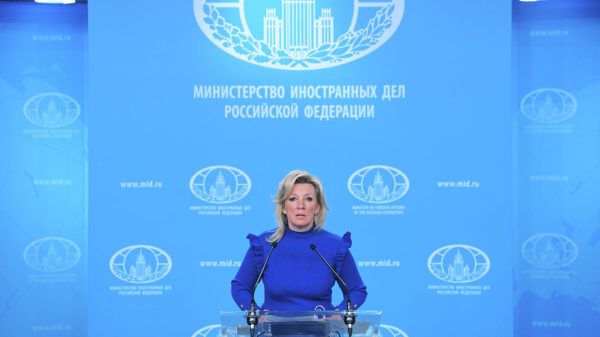
Jeremy Hunt has a £100 billion headache. The Chancellor may be enjoying a flood of extra tax revenue thanks to high inflation, but the consequence is rising interest rates on the country's debt.
Higher debt servicing costs are expected to continue until at least the end of the decade , according to forecasts from the Hunt Tax Office.
The Office for Budget Responsibility (OBR) now estimates that by the end of the year the UK will still be spending £122.5 billion a year servicing the country's debt. decade.
He revised down his forecasts for interest on debt by an average of £20 billion a year over the next five years.
Lord Lamont believes the Chancellor should be concerned about the size of Britain's debt already exceeding 90% of GDP and, is expected to continue to rise over the next three years.
“The danger is that interest costs on debt grow faster than the economy, in which case debt interest will become an increasingly large part of government expenses,” says the former chancellor.
A quarter of Britain's debt is linked to inflation, specifically the retail price index, which has soared over the past year amid a surge in energy costs.
Although inflation is now falling, energy costs are expected to rise interest on debt will still be 4.3% of GDP in 2023-24. This is 0.6 percentage points higher than the OBR's March forecast and represents the second highest level since the Second World War.
Debt interest rates are expected to remain well above pre-pandemic levels for the foreseeable future as interest rates remain high for longer to curb inflation, pushing government bond yields higher.
At 3.8 % of GDP by the end of the decade, the cost of paying interest on debt will dwarf the budget of every government department except the Ministry of Health.< /p>
This means less money for the NHS, less money for schools and less money for roads and railways.
In the words of Lord Lamont: “If interest continues to rise faster than the economy, you are on the right track.”
This will have implications for taxes and spending in the future, says Paul Johnson, director of the Institute for Fiscal Studies (IFS).
He says: “The big picture remains as we have known it for some time. Both taxes and spending are high by historical standards. Interest costs on debt will remain about 2% of GDP higher than in 2019. That's the same as the entire defense budget.» Johnson warns that this means that simply stabilizing debt at current levels will require Britain to run a «substantial» primary surplus, meaning it will need balance the balance sheets without taking into account interest on debts.
The OBR predicts the government will start doing this in 2025. But these are projections and, as Johnson stresses, the reality is that “we haven't done this since the turn of the century.”
He adds: “Given the level of debt and interest on the debt, we will have to get used to these surpluses. This will require the government to take more from us than it pays back for everything except paying interest on the debt.”
Government departments are already facing difficulties as inflation also erodes the purchasing power of Whitehall budgets. which are set in monetary terms.
OBR data shows vulnerable areas of public spending such as prisons, courts and local councils already cost £19.1 billion sterling in real terms. over the next five years, cut current plans.
If borrowing costs rise further, these departments will have to spend even less, says Paul Dales, chief UK economist at Capital Economics.
“This will be a problem from 2025-26 onwards and a problem for whoever wins the next general election,” he says.
Voters who have already found that burglaries go unsolved, doctors can't get appointments, and trash cans are only picked up every three weeks may find that reality difficult to accept, Dales adds.
p>
«It makes sense. There is a perception that government departments are not able to provide the level of service that the public expects from them,» he says.
He also warns Labor will face even tougher times as the sums add up. .
“I think it will be a particularly big problem if Labor is next in government because Labor typically wants to spend more on public services to improve their delivery. According to current financial indicators, they will not be able to do this unless they manage to collect taxes from other areas to finance them.»
However, if the OBR forecasts, the question of how much interest rates will fall is proving to be too cautious.
“It may not be as bad as the OBR expects, but nonetheless the government should get used to having to pay out more interest on debt than it has been accustomed to for some time,” says Dales.
In any case, the outlook may not be as rosy as Hunt would like.
Of course, given the size of the British economy, the debt pile would be less of a headache if the economy were growing faster.
Richard Hughes, chairman of the OBR, warned that even this would remain a challenge. He said economic growth was likely to remain anemic in the short term as the UK suffered from a «troubling» combination of high interest rates and low growth, which weakened the UK's economic outlook compared with other rich economies.
He said: “We have a worrying US-style interest rate configuration, but European-style growth. And so this dynamic is particularly troublesome for us as a member of the G7 because we have relatively high interest rates, but we don't have matching American growth.»
Hunt says cutting National Insurance spending and business taxes will help boost economic growth, along with 100 other measures.
«It's completely wrong to say I'm relying on some growth fairy for the future,» he said BBC. , adding that his economic growth policies would “increase business investment by £20 billion.”
“I could do a lot with the stock I have,” he said. “But as a conservative, I believe lower taxes are how we grow the economy.”
However, the OBR believes he is swimming against a powerful tide of an aging population and a rising proportion of Britons with long-term health problems.
Within the first two minutes of his Autumn Statement speech, the Chancellor was keen to emphasize that “our choice is not big government, high spending and high taxes, because we know that leads to slower economic growth.” But the IFS's Johnson says Hunt may have to live with those words as the UK's demographic decline suggests taxes will continue to rise.
“Taxes in this Parliament have risen by 3% or 4% of national income compared to where they were before. it was a long time ago,” he says. “I have made a prediction that in my lifetime they will not return to where they were during the first five decades of my life.”
“It is not because this government — or indeed any government — particularly wants a huge state and huge tax burden. But we are going to spend more on health in the future.”
Johnson adds that the NHS workforce plan published this year, which would see one in 11 workers in England working in the NHS by 2037, would cost 2% national income over the medium term is on its own.
“We're going to spend more on pensions,” he says. “And of course we have very high levels of debt and therefore interest costs on debt, so I assume we are in a new equilibrium in terms of the scale of taxes and spending going forward.”


























































Свежие комментарии